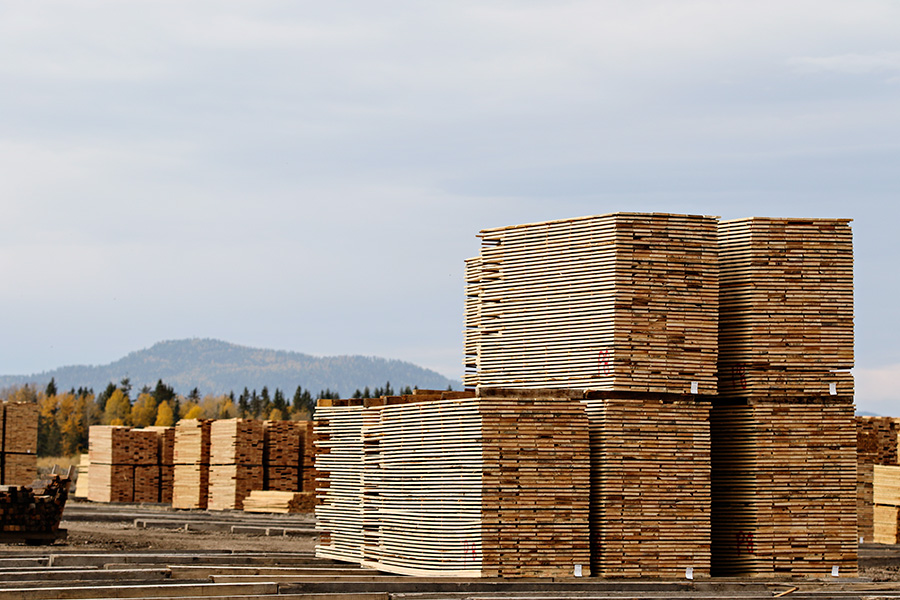The saga over softwood lumber markets in Canada and the United States moved forward this week, with the announcement that the U.S. would impose tariffs on Canadian lumber after settlement talks between the countries failed.
Canadian trade authorities decried the move as “unfair, unwarranted and deeply troubling” in a statement.
Softwood lumber has been the subject of an enduring trade dispute between the two countries, and the most recent Softwood Lumber Agreement (SLA) lapsed last November after 10 years.
In May, President Donald Trump announced a 24 percent tax on imported softwood lumber, which the Canadians also called punitive. The Nov. 2 decision from the U.S. Department of Commerce places most Canadian lumber producers paying a combined tariff of 20.83 percent.
Montana Republican U.S. Sen. Steve Daines praised the move as a way to “level the playing field” for Montana lumber producers.
“[Thursday’s] announcement is putting America first and protecting the hardworking families who rely on good-paying lumber jobs,” Daines said in a prepared statement. “We are leveling the playing field so that the Canadians have to play by the same set of rules that Montanans do.”
In its decision, the Commerce Department determined that Canadian exporters have sold lumber in the U.S. for 3.2 percent to 8.9 percent under fair market value, and that Canada is subsidizing softwood lumber producers at rates of 3.34 percent to 18.19 percent.
Canada’s Chrystia Freeland, Minister of Foreign Affairs, and Jim Carr, Minister of Natural Resources, released a Nov. 2 statement on the Commerce Department’s determinations.
“The U.S. Department of Commerce’s decision on punitive countervailing and anti-dumping duties against Canada’s softwood lumber producers is unfair, unwarranted and deeply troubling. That is why we announced an $867 million action plan to support affected workers and communities and to chart a stronger future for our worker,” the ministers said.
They urged the U.S. to rescind the new duties, which they said harm workers and communities in Canada. They also said Canada would defend its softwood lumber industry through litigation if need be.
The basis of the dispute comes down to two different forms of government having two different forms of lumber harvest. Canada’s provincial government owns the majority of timberlands that provide trees to Canadian producers, charging an administered fee. In the U.S., the timberlands are typically privately owned, and the market determines the price of those logs through public sales.
In 2006, the countries reached a bilateral deal with the SLA, in which Canadian producers agreed to adhere to a quota on softwood lumber exports to the U.S. or pay taxes on the goods shipped here. The deal expired in October 2015, starting a one-year complaint window during which nothing was filed.
A month after the agreement lapsed, the U.S. Lumber Coalition filed a petition with the federal Commerce Department and International Trade Commission to seek duties for Canadian lumber that the coalition said is dumped into the U.S. market under market value.
